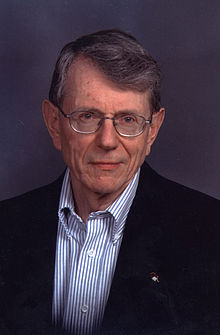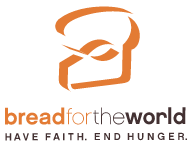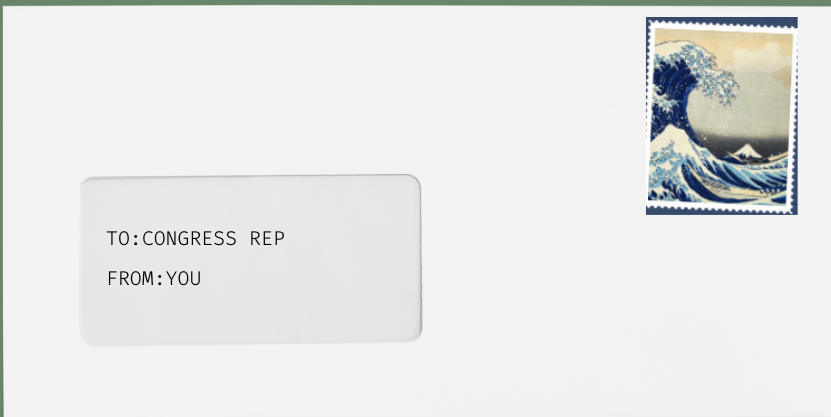Co-missioners,
Today Steve Hitchcock helps us remember our late brother, the Rev. Art Simon, an LCMS pastor who founded Bread for the World. In doing so, he led innumerable Christians, including many at Crossings, to think more broadly and vigorously about their vocation as baptized people. Steve, who knew Art well, will discuss this. He’ll also leave you thanking God for the gift that Art was.
Still another reminder: we’d love to see you in St. Louis at the end of next month, January 28-30, for a brief yet splendid seminar in preaching. God grant that you can make it. See here for details.
Peace and Joy,
The Crossings Community
__________________________________________________________________
In Thanksgiving for Art Simon
by Steve Hitchcock

Arthur Simon – From Wikipedia
Thursday Theology is an appropriate place to remember and honor the Rev. Art Simon, who died at age 93 on November 15. Art was an active member in the Crossings community, following the weekly postings and making financial contributions. He served as a featured speaker at the 2020 Crossings conference. His address was titled “Bread for the World and the Promise of God.”
Art’s involvement in Crossings was complemented by all those in Crossings who are active members of Bread or the World. Indeed, about a quarter of all Bread for World members are Lutheran, and ELCA parishes always make up a big percentage of churches that conduct an Offering of Letters to Congress.
Art’s involvement in Crossings was tied up with his long and close friendship with Ed Schroeder. Their association goes back to their days together at Concordia Seminary. Ed’s frequent visits home to the Schroeder family farm in Southern Illinois, brought him into contact with Art’s brother Paul, who served as newspaper editor, then member of Congress representing Southern Illinois, and then a distinguished career as a U.S. Senator.
I grew up with Paul and Art Simon. Nearly 60 years ago, as a snot-nosed teenager in Southern California, I had concluded that the church and all adults were a lost cause. Then I had the chance to be part of a small group of young people who heard Congressman Paul Simon speak. He actually talked with us and answered our questions. That experience changed my perspective on both church and society.
Later in 1974, in my first job out of seminary working for ELIM (Evangelical Lutherans in Mission), my boss Larry Neeb told me to call Art Simon in New York. I was to find out if we could raise money for the new organization Art had founded there: Bread for the World.
Over the years, I stayed in touch with Art and Bread for the World. In 1989, I visited Washington, D.C., as part of my job with a fundraising consulting firm. Early one morning, I took the DC Metro and met Art at the airport where he was flying to some meeting. He asked me to go talk with one of his staff at the Bread for the World offices.
That conversation led to others, and our fundraising firm was hired to work with Bread for the World. In 2008, when I retired from the consulting firm, Bread for the World asked me to be an employee. At the end of 2020, I retired again, but I have served as a volunteer and more recently as consultant.
Beyond my personal connection with Art Simon and Bread for the World, I’ve benefitted from Art’s theological legacy. Specifically, Art founded a Christian citizens’ movement.

Bread for the world logo – From Wikipedia
All three words are significant. Art didn’t spend a lot of time explaining the Christian dimension of Bread for the World. He didn’t quote a lot of Bible verses or present theological rationales for what Bread for the World was doing. He never pretended the organization was proclaiming the Gospel or that Bread for the World was the church. (Art wisely sensed that this minimalism made it possible to involve the widest possible range of Christians in its work.)
On one occasion, Art did speak explicitly about theology—at the 2010 Crossings conference. His comments get to the heart of the law-promise theology that animates Crossings. Early in his speech, he said, “I am here to tell you of God’s love for us in Christ Jesus. That is the Gospel. I am also here to urge you to help those who are hungry. That is the law.”
Art’s great insight is that paying attention to the laws and policies of our government is essential as we take part in God’s work of preserving creation.
In the second word—citizens—Art reflected a Lutheran understanding of vocation. In particular, he lifted up citizenship as one of the “estates” or vocational placements in which we join in God’s preservation of creation. Art emphasized that, as citizens, we had a responsibility not only to vote but also to influence our elected representatives about specific legislation. Ours in an active and engaged citizenship. God has given us this responsibility to communicate and persuade.
In this citizenship, we are engaging the “order” of government. Part of Luther’s radical break with the papal church was to urge and honor “ordinary works”—as opposed to “extraordinary works” done in monasteries and the priestly functions. These ordinary works in the regular orders of society—home, work, and civil government—had a valuable role in preserving God’s creation. As Art put it well in his 2010 presentation:
“Advocacy, of course, requires Bread for the World to take positions on specific issues and urge our government to take action on them. That’s the left-handed work of God. The actions urged are not divine prescriptions….God hasn’t written the legislation. God gives people—leaders, citizens, us—the assignment of figuring out how to make that happen.”
Third, Art founded a movement. “Citizens” is plural. Art saw that people in the pews, acting in concert to communicate with Congress, could move those leaders to change the conditions and policies that allowed hunger to persist. “Movement” implies two facets of Bread for the World’s mission: to always be inviting more and more people to participate and to engage those people—not necessarily educate them—to actually do something: in this case, communicate with members of Congress.
Art was convinced that these individuals around the country were much more important than the organization’s brilliant policy analysis or the sophistication of its staff in Washington, D.C.
My own hope is that, for those of us in the Crossings community, Art’s insight about a movement would inspire us to redouble our efforts to enlarge and broaden the Crossings community. Certainly, our co-founders Bob Bertram and Ed Schroeder had a passion for communicating with people in the pew and in the workplace. Crossing daily life with the Gospel was the point of the so-called six-step method.
I think Art Simon would have agreed that the law-promise theology we hold dear is a treasure to share with as many as possible. The Gospel is God’s gift to everyone.
Thursday Theology: that the benefits of Christ be put to use
A publication of the Crossings Community




You must be logged in to post a comment.